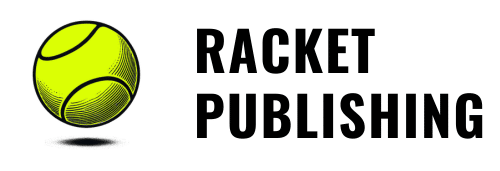Mark had spent over a year writing his first book—a guide to digital marketing. He found the subject interesting, and he enjoyed the concentration that long-form writing required.
In a few hours, he would finally hold the fruits of his labor in his hands. As part of his contract with his publisher, Mark would receive 25 complimentary copies of the book. In a twist of fate, the books were scheduled to arrive on his birthday. He couldn’t think of a better present.
Now, they were on their way to his home, and he could hardly wait. He checked the location of the UPS truck every 15 minutes.
At 10:37 a.m., he saw the UPS driver approach his door. Mark opened it, smiled, said hello, signed for the books, thanked the woman, and eagerly opened the box.
Here’s where the story takes a sad turn.
Shock and Awe
Mark was downright giddy as he opened the first copy. First, though, he took a deep breath. He wanted to soak it all in. This was a major professional achievement, something he had wanted to do for a decade. He had spent months promoting the book on his website, social media channels, his newsletters, and at conferences.
He quickly noticed a typo in the front matter. A few pages later, he saw an incomplete sentence, and then a transposed word. “That’s odd,” his wife said to him. “This is the final version of the book, right?”
He tried to remain calm. Mark knew that sometimes a few errors snuck through the quality-control process, but seeing three in the first five pages made him furrow his brow. The early pages were no blip. He continued reading and discovered at least one mistake every few pages. He started logging the problems in a spreadsheet. Once he hit the fifteenth entry, he called Jim, his acquisitions editor.
Jim told Mark that a handful in a release isn’t uncommon. Still, Mark shouldn’t see so many. Jim could only chat for a few minutes, though. His day was jam-packed with meetings.
Pressing on
Mark continued reading his book, noting the miscues. As he approached the halfway point of his text, he was nearing 80 issues. Although most of them were pretty minor, each one made him angrier.
Finally, Mark stopped reading. Even if the remaining eight chapters of the book contained zero errors, surely Jim would find the situation unacceptable. It was time to talk about damage control and creating a remediation plan.
Mark looked at his contract. His publisher agreed to initially print 5,000 copies of the book, with more promised based upon future sales. Mark was relieved. Because he caught the issues early, surely the publisher would immediately destroy the existing, error-ridden copies. After all, the status quo made both the publisher and him look bad. He expected Jim to agree with him and authorize the changes pronto.
The Verdict
Most praised the book’s content, but some rightfully called out the rampant errors.
The next day, Mark called Jim again to discuss next steps. Unfortunately, Jim said, the publisher was unwilling to shred any of the printed copies. If the book sold out its initial run, however, Jim would consider revising the galley. Mark argued the point, but he soon realized that he was fighting a losing battle.
In the upcoming days, Mark saw Amazon and GoodReads reviews trickle in. Most praised the book’s content, but some rightfully called out the sloppy proofreading. He vowed never to endure that level of unprofessionalism again.
Coda: Lesson learned.
For his next book, he decided to work with a hybrid publisher. He enjoyed greater control and transparency over the publishing process, with no dropoff in quality. When he did receive advance review copies of his new ones (clearly marked as such), he spotted a few minor issues. His new team gladly fixed them.
I’ve changed the names and a few details in this story.



True story: I’ve had the publisher spell my name incorrectly on the cover of the book and refuse to correct it.
They argued that since my name was spelled correctly on the spine and back of the book, there was no need to correct the front cover. (It was an anthology of short stories by multiple authors, with a print run of only 2,000, so I didn’t have much choice but to let it slide.)
Jesus. This is why I really can’t envision going back to a traditional publisher. They generally don’t care about their own products. Add to that the fact that they don’t know their customers, and it’s a recipe for obsolescence.